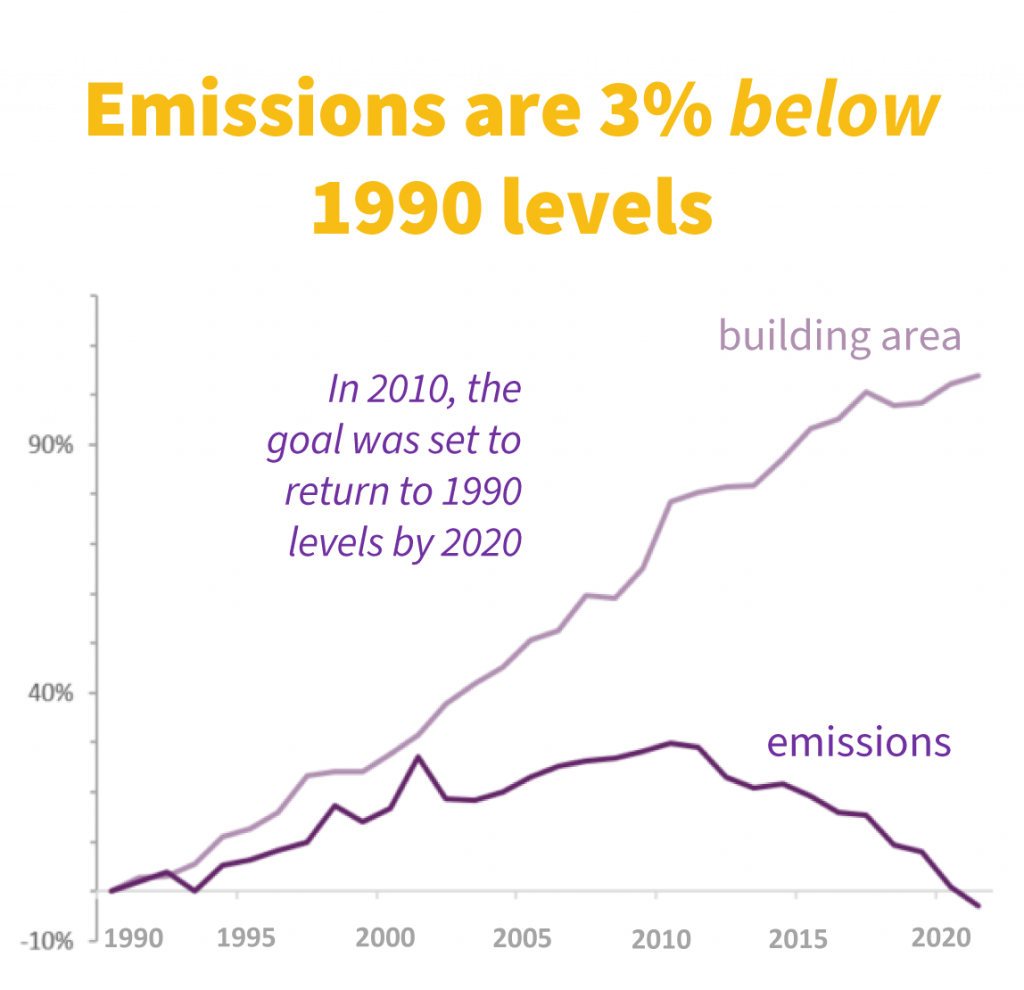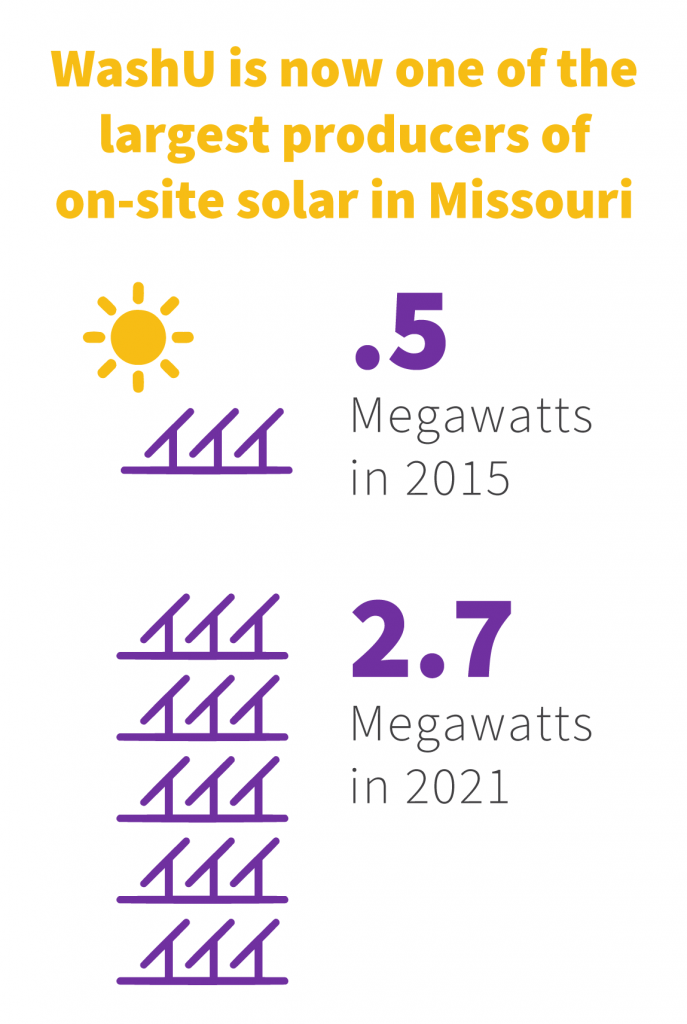
Washington University in St. Louis’ goal is to chart a path toward carbon neutrality without purchasing renewable energy credits.
2015 Strategic Plan for Sustainable Operations
Objectives & Progress
Greenhouse Gas Emissions | Achieved
In 2015, WashU committed to reduce greenhouse gas emissions to 1990
levels by 2020, including all growth. Since 1990, campus building square footage has more than doubled. However, our Scope 1 & 2 greenhouse gas emissions in 2021 were 3.5% below 1990 levels.
After twenty years of carbon emissions rising in parallel with the growth of campus space, WashU’s emissions peaked in 2010 and have been steadily declining since. In 2021, emissions were 28% lower than the peak in 2010. The decoupling of emissions and growth resulted from WashU adopting its first carbon reduction target in the 2010 Strategic Plan for Sustainable Operations, leading to significant investments in energy efficiency and on-site renewable energy.
Renewable Energy
In addition to institutional efforts to reduce greenhouse gas emissions through energy conservation, WashU is committed to pursuing renewable energy projects.
WashU’s first major investment in renewable energy occurred in 2015 with the installation of rooftop solar arrays on university-owned property throughout the region, including Hillman Hall, the Lofts, and School of Medicine buildings. These solar arrays increased WashU’s solar generating capacity from 33 kW to 580 kW.
The second wave of solar projects took place in 2019 with a $3.5 million project adding 1.9 MW of solar on the Danforth, Medical and North campuses. The Athletic Complex, North Campus, and Taylor Avenue Building are among the many locations that benefited from these installations.
In summer 2021, additional solar arrays were added to the Schnuck Pavilion, Sumers Welcome Center, Jubel Hall, and McKelvey Hall.
Today, the university is home to 2.7 megawatts of on-site solar, making it one of the largest producers of on-site solar energy in Missouri.
Highlights
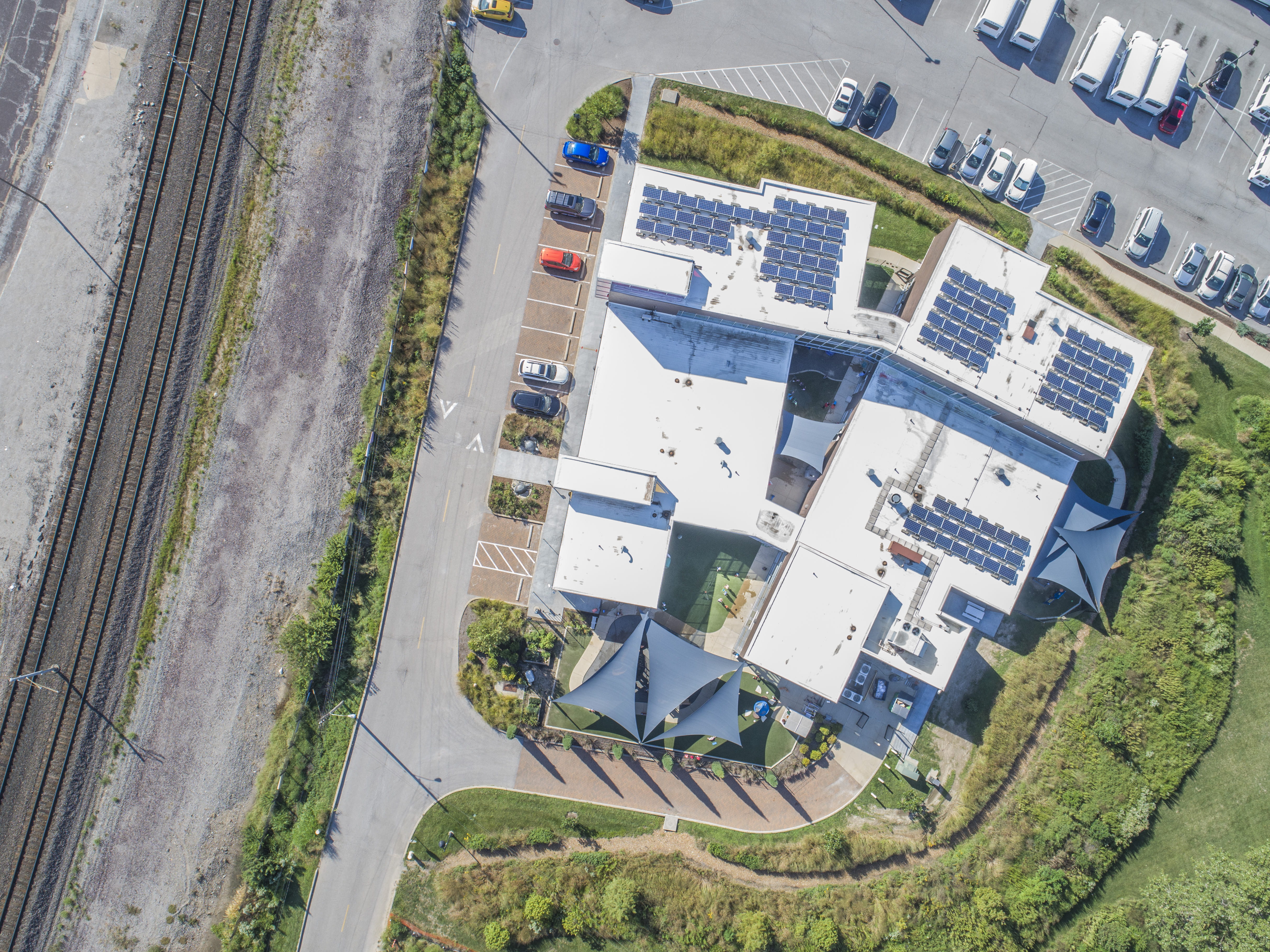
On-Site Solar Installations
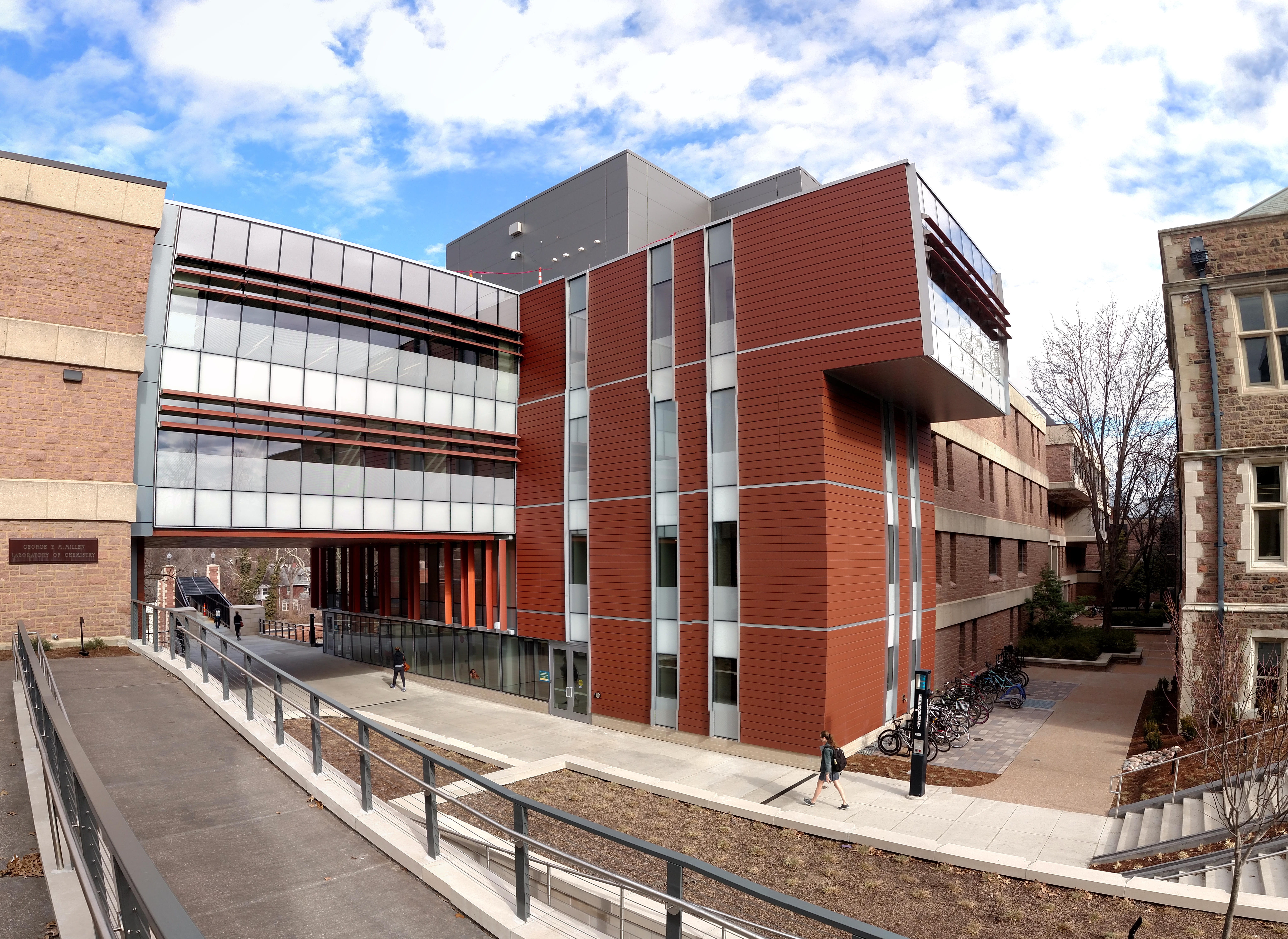
Energy Efficiency
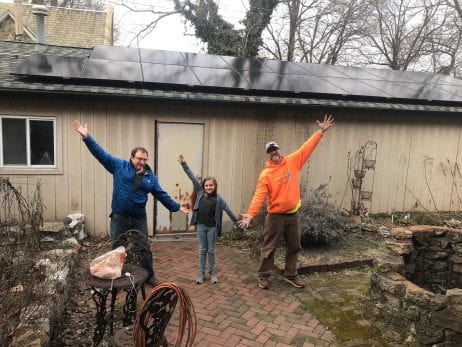
Grow Solar
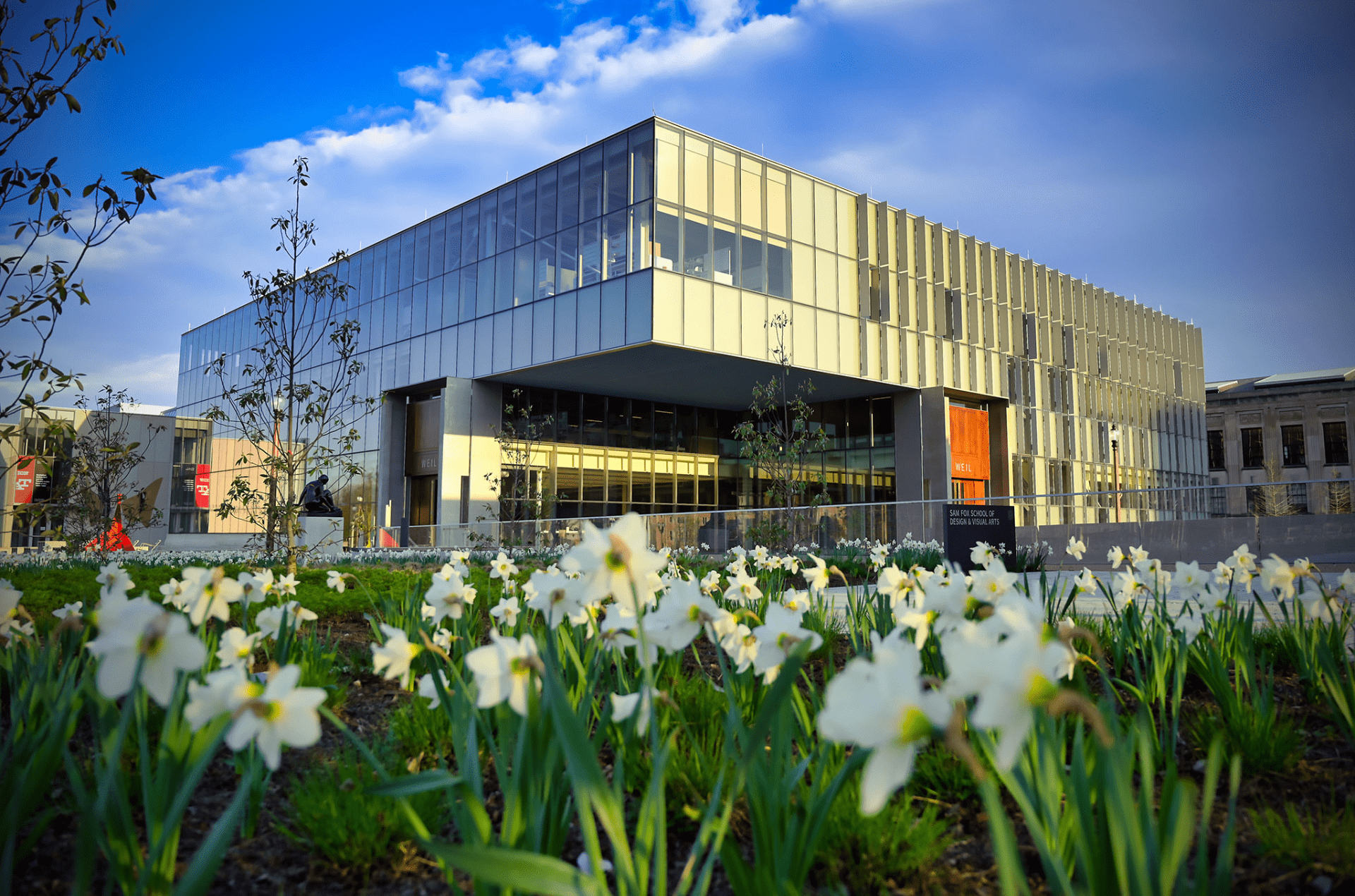
East End Buildings

Policy Toolkit
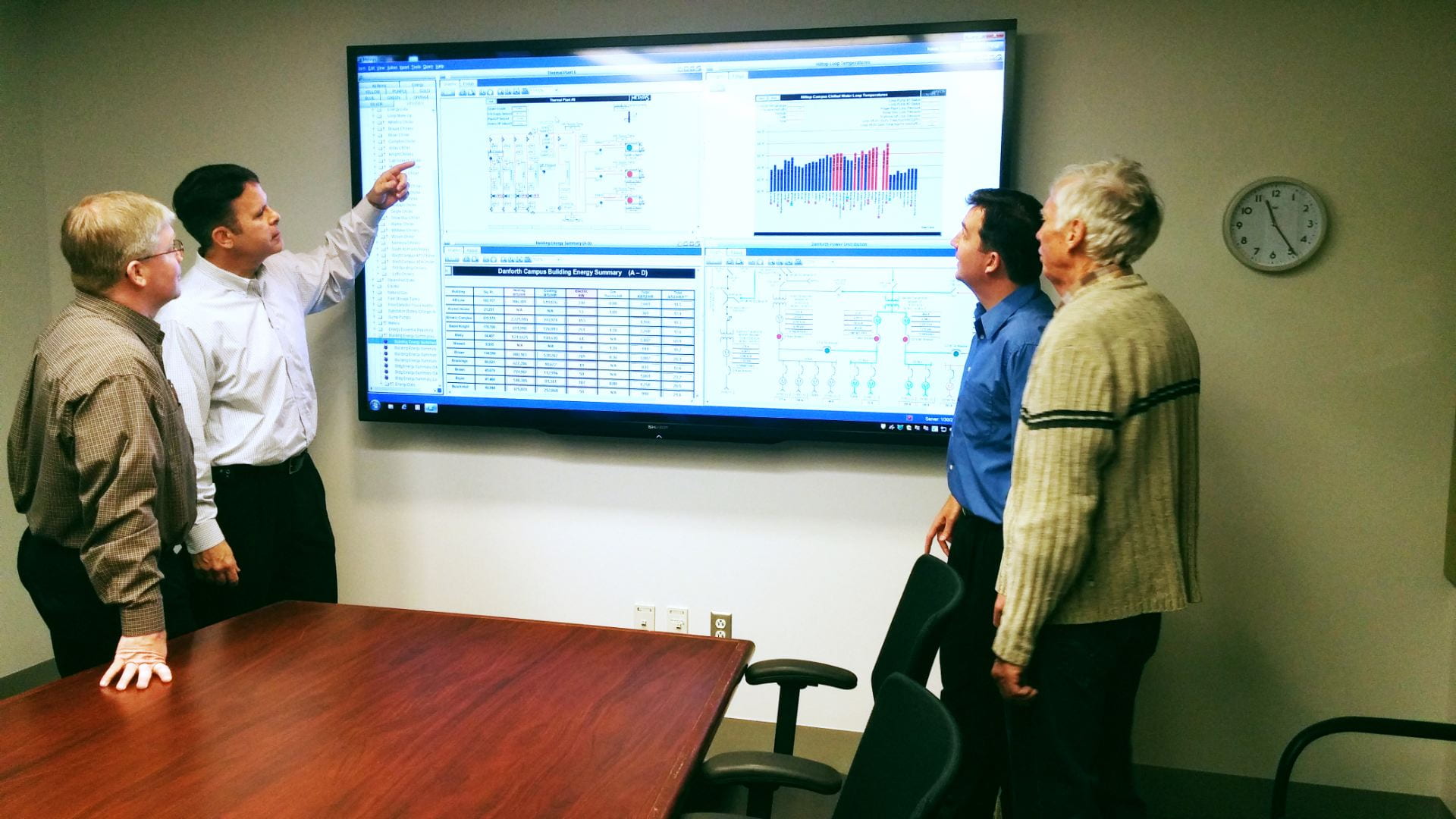
Sub-metering
Energy & Emissions Partners
We would like to acknowledge and thank our campus partners who are instrumental in implementing and carrying forward the vision displayed on this page. The partners listed below have and continue to be committed to achieving the goals to reduce our energy use and greenhouse gas emissions.
